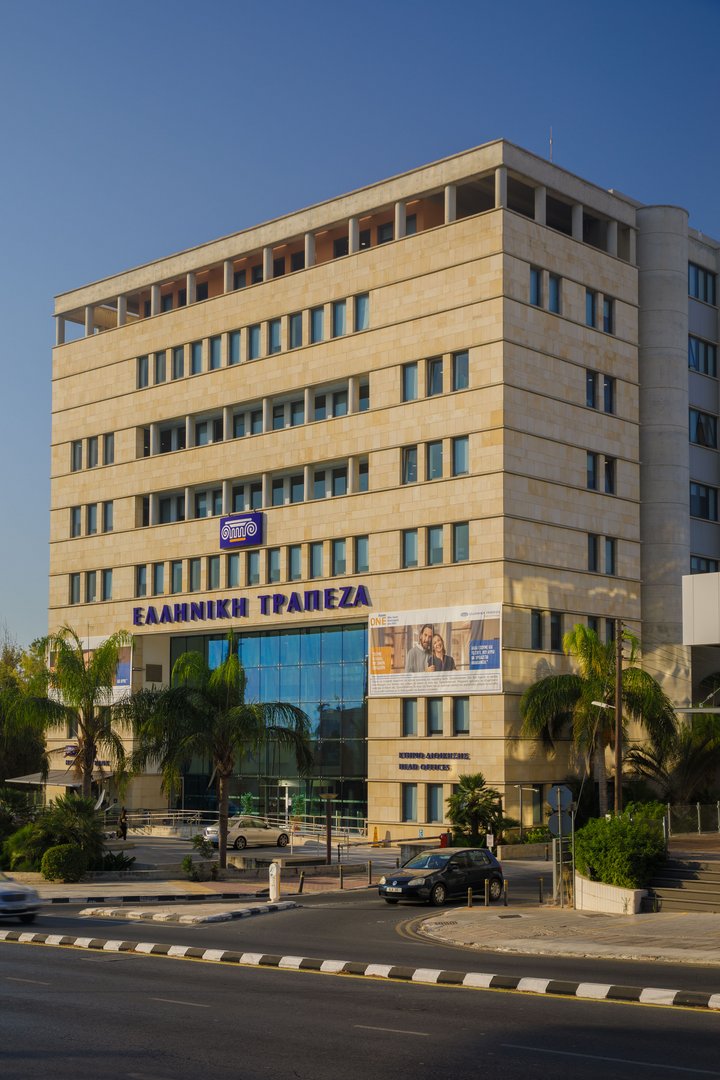Capital Intelligence Ratings (CI Ratings) this week announced that it has upgraded the Long-Term Foreign Currency Rating (LT FCR) of Hellenic Bank (HB) to ‘BB’ from ‘BB-‘ and affirmed the Short-Term Foreign Currency Rating (ST FCR) at ‘B’.
At the same time, CI Ratings has raised Hellenic Bank’s Bank Standalone Rating (BSR) to ‘bb’ from ‘bb-‘.
In addition, the Outlook for the LT FCR and BSR have been revised to Stable from Positive, while the agency also noted that the bank’s Core Financial Strength (CFS) rating of ‘bb’ and Extraordinary Support Level (ESL) of Uncertain have been affirmed.
Regarding the stable outlook, Capital Intelligence said that this indicates that the banks’ ratings will not change over the next 12 months.
However, the report noted that the outlook could be revised to positive if the planned Non-Performing Loans (NPL) securitisation is completed within the next 6 months and if there is a notable improvement in the bank’s profitability.
What is more, regarding Hellenic Bank’s ratings, the agency explained that although the quality of assets, as measured by NPLs, has improved significantly, the uncertainties, which are related to the effects of the conflict in Ukraine, both in the quality of assets data as well as the bank’s profitability, are likely to continue to weigh on ratings.
Furthermore, Capital Intelligence Ratings underlined the fact that Hellenic Bank has a well-diversified and stable deposit base of retail banking customers and has limited funding dependence on the markets.
The agency also reported that the bank’s liquidity continues to be strong while its capital adequacy is deemed to be satisfactory, with the bank remaining credit-strong, while its capital ratios are strong with its capital quality being good.
Meanwhile, the agency said that the ratio of NPLs to equity “remains high”, although it shows a “significant downward trend”, emphasising that at the same time part of the gross NPLs benefits from a state guarantee of 90 per cent, which allows Hellenic Bank to maintain lower reserves for potential loan losses.
The agency also stated that the large customer deposit base, combined with the relatively low percentage of loans the bank has on its balance sheet, allow Hellenic Bank to use a significant share of its assets in liquid investment securities.
Another credit strength for Hellenic Bank, according to Capital Intelligence, is its significantly improved loan quality, as evidenced by its NPL ratio falling to 10 per cent at the end of the first half of 2022.
However, Capital Intelligence Ratings noted that its loan quality remains a “significant credit challenge”, while the high exposure of the bank’s loan portfolio to the real estate market “adds further pressure to asset quality”.
Moreover, the agency reported that another key credit challenge for the bank is its low profitability, adding that Hellenic Bank reported improved operating and net profitability in the first half of 2022, due to higher net interest income and lower provisions for expenses from loan losses.
However, the agency commented that the bank’s profitability ratios are still below pre-2020 levels.
“The higher interest rate environment will likely have a positive impact on net interest income, which may boost operating profitability if operating expenses are contained in the current inflationary environment,” the report said.
Finally, the agency stated that the change in Hellenic Bank’s top management in 2021, combined with the introduction of a leaner management structure, is key to an expected improved performance in the coming years.






Click here to change your cookie preferences